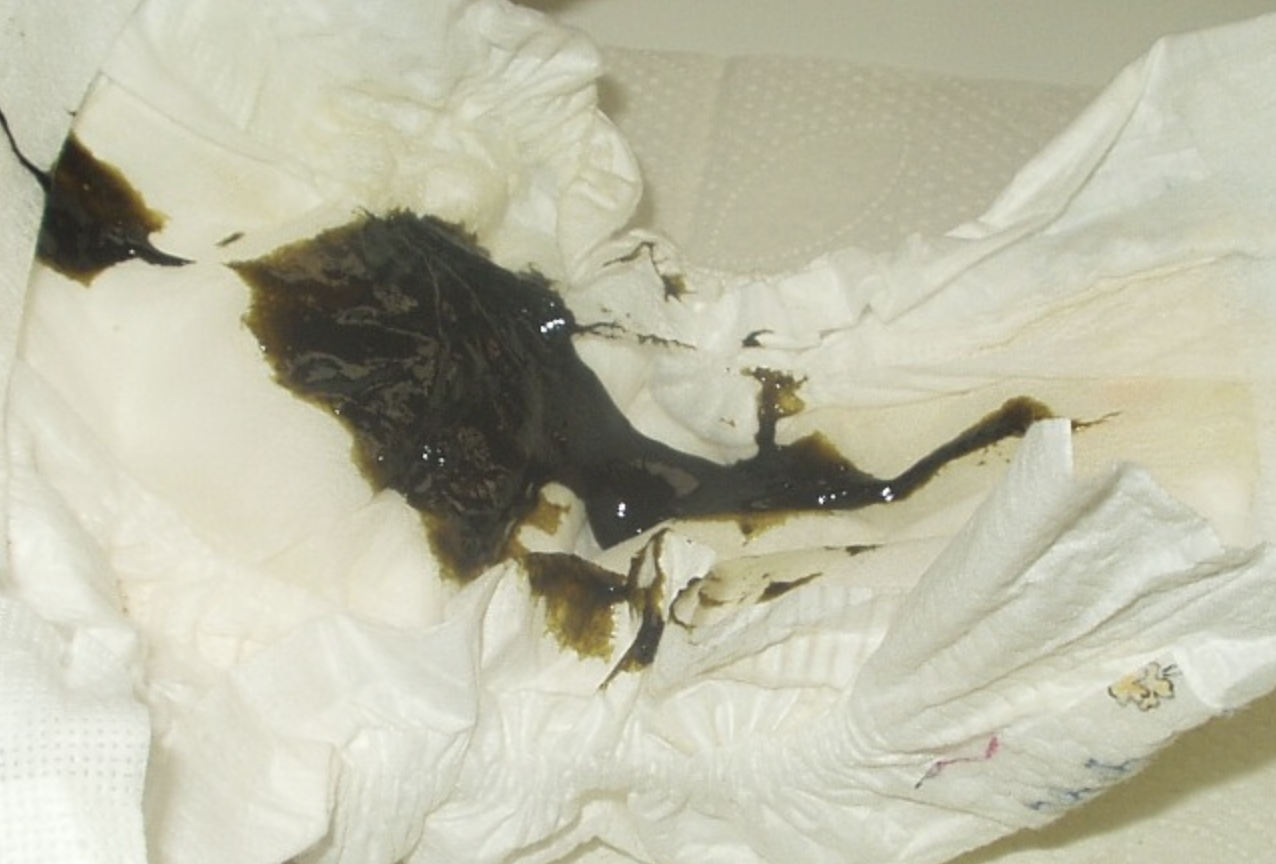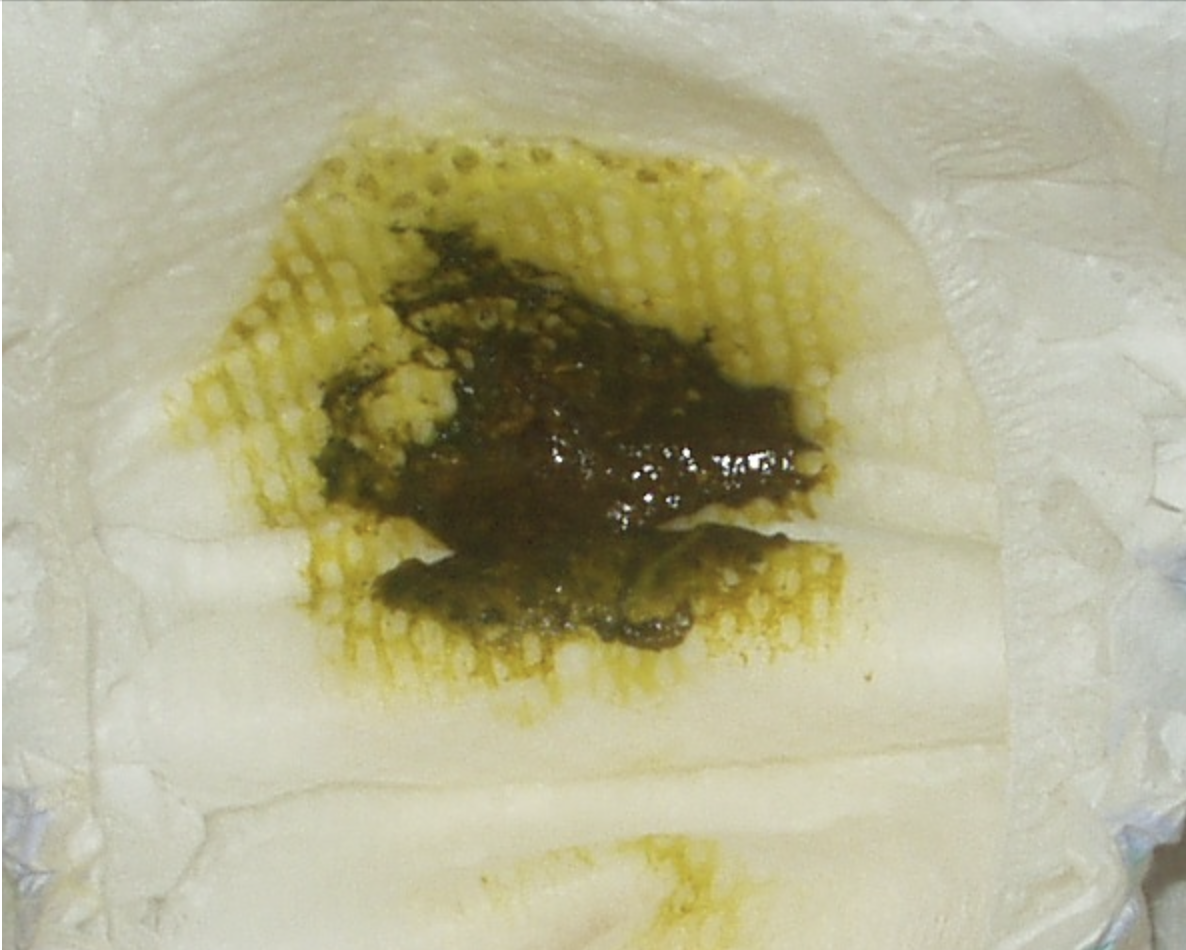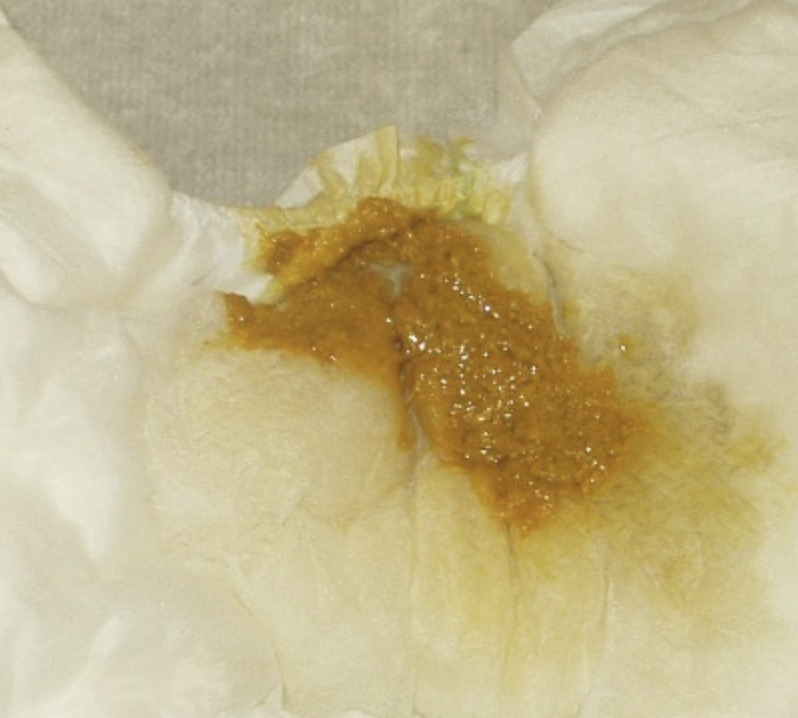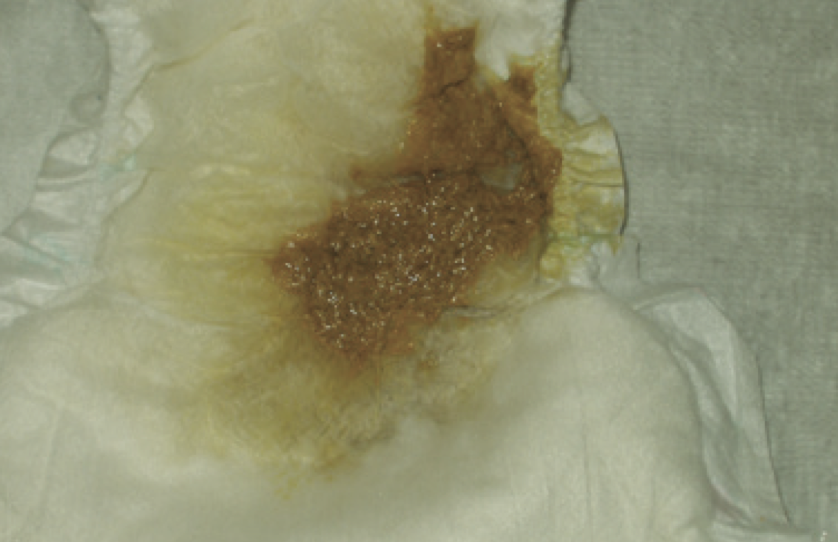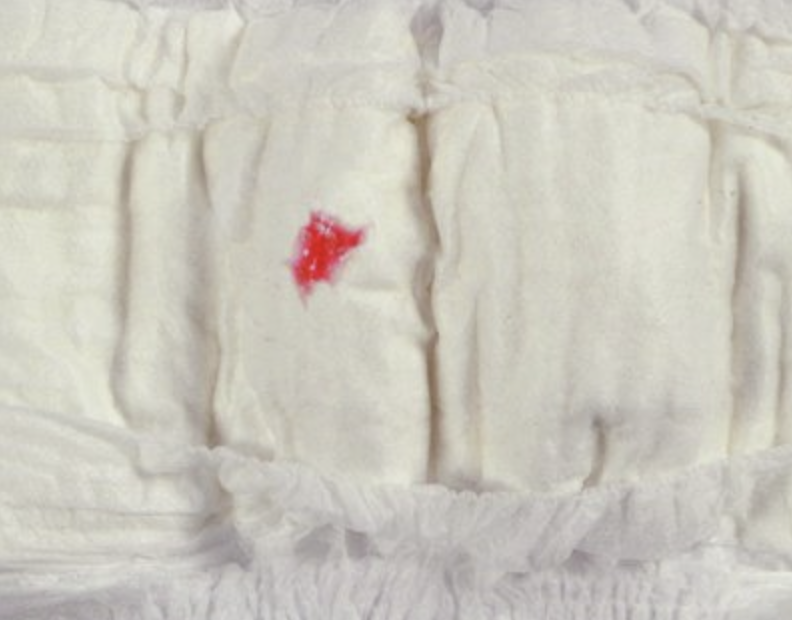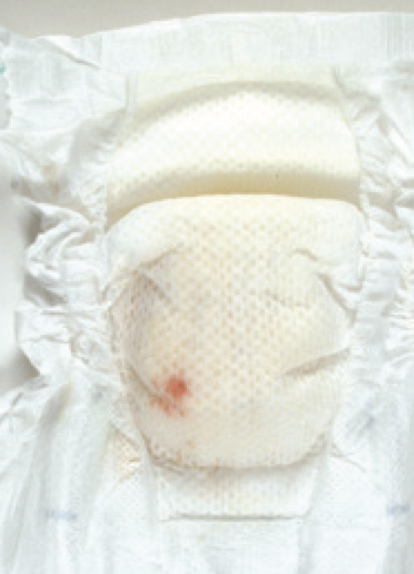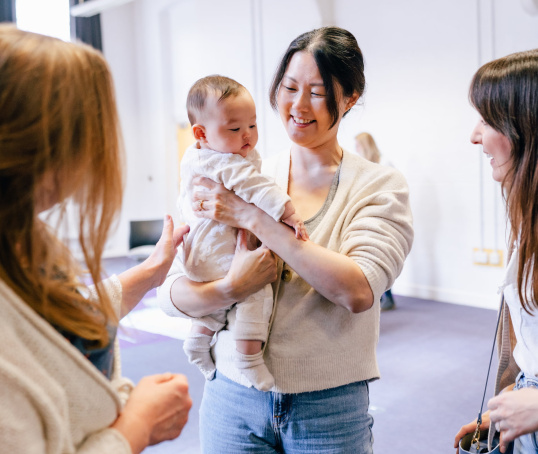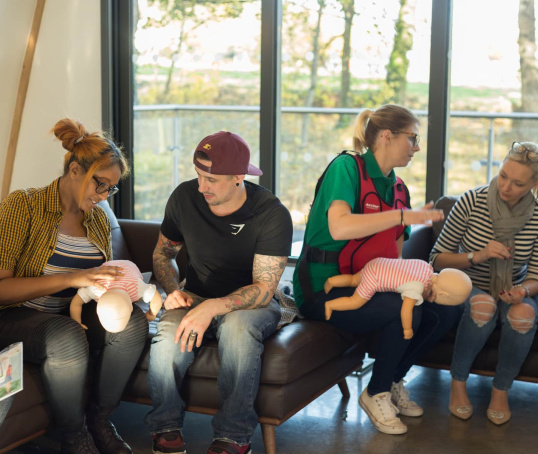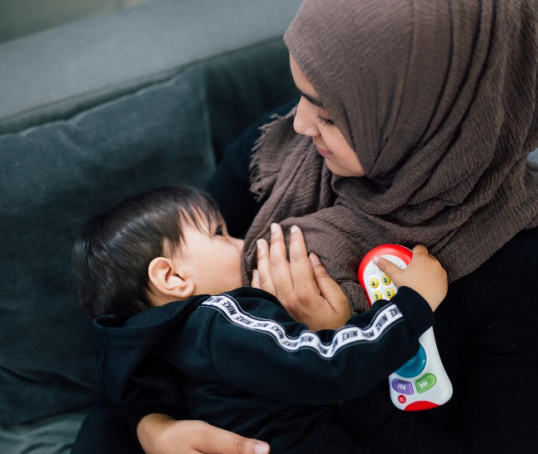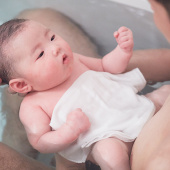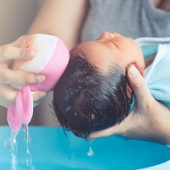The contents of your baby's nappies change day by day at first. Read about how often your baby will wee and poo and what it'll look like, so you know what to expect.
This information applies to all babies, however they are fed.
A picture guide to your baby's wee and poo
After the first week:
Babies continue to wee and poo several times each day. Talk to your midwife or health visitor if your baby is pooing less than two times a day up to six weeks old.
After about six weeks:
Some (not all) babies poo much less often. Breastfed babies may go several days without producing any poo at all after this time.
When your baby starts eating solid food their poo will become firmer.
Is it ok for my baby not to poo every day?
If your baby is under six weeks old and exclusively breastfed, they should poo every day. A baby who does not poo for a day or more may be showing you they need to feed more often or more effectively. Seek help from your midwife, health visitor or GP.
Babies over six weeks old don't always poo every day. Talk to your midwife or health visitor if you're worried.
How can I tell if my baby is healthy?
A good way to tell if your baby is healthy and getting enough milk is if they're producing plenty of wet and dirty nappies.
Is it normal?
The list below doesn't usually mean that there's a problem, but if you're worried, talk to your health visitor, midwife or an NCT Breastfeeding Counsellor. You can also call our infant feeding line on 0300 330 0700 for free support, 8am to midnight, every day of the year.
Frothy poo
Frothy poo isn't usually something to worry about, especially if it is a one-off. However, if it is accompanied by nipple soreness, a change in your baby's behaviour (or lots of fussiness from birth), rashes or weight concerns, talk to your health visitor or midwife.
Green poo
Green poo may be normal for your baby or could be a result of a tummy upset or cold. The parent's diet or medication could also lead to green poo. If your baby is fussy, wants to feed a lot, or is difficult to settle then it may be worth talking to an NCT Breastfeeding Counsellor or health visitor (Pearson-Glaze, 2023).
Constipation
If your baby's poos are soft, they aren't constipated, even if they haven't done one for a few days. But fewer than three poos a week (unless your baby is exclusively breastfed), or if your baby is very uncomfortable or clearly in pain, with small and hard poos, then they may have constipation. This is rare in solely breastfed babies but not uncommon in formula-fed babies. Your health visitor or pharmacist may be able to advise you (NHS, 2021; NICE, 2024).
It is normal for babies to strain, grunt or go red in the face before doing a soft, normal poo. Some parents find it helps the baby to relax their pelvic floor if you bend and move their legs up. This will usually get better as your baby grows (ERIC, 2022).
You could also read our article about colic and crying.
When to seek help
There are some changes to your baby's poo which you should talk to a doctor or health visitor about.
- Meconium not appearing within 48 hours
- Fewer than two poos in 24 hours in the first six weeks
- Smelly poos when your baby is exclusively breastfeeding
- Pale poos, which might be a sign of liver disease
- Poos changing to ribbon-like, or harder poos, particularly if they have blood in.
(NHS, 2021; NICE, 2024)
How often to change your baby's nappy
You'll need to change your baby's nappy after every poo to avoid nappy rash. On average, newborn babies poo four or five times a day (NHS, 2021).
Some parents wait until the nappy feels 'heavy' with wee before changing it, but if your baby's skin is becoming sore then you need to change the nappy more often. Your baby may need changing as many as 10-12 times a day in the early days and weeks (NHS, 2021).
When is a wet nappy full?
It can be hard to know when a disposable nappy is full. Try adding two to four teaspoons of water to an empty nappy to see how heavy it feels (NHS, 2022).
Some disposable nappy brands now have a wetness indicator strip on them, which changes colour when your baby has a wee.
If your baby is wearing a reusable nappy, you can check its weight or open it to see if it's wet.
Further information
You might find attending one of our NCT New Baby courses helpful. They give you an opportunity to explore different approaches to important parenting issues with a qualified group leader and other new parents in your area. You can also look up NCT feeding support near you.
Our NCT Infant Feeding Line offers practical and emotional support with feeding your baby and general enquiries for parents, members and volunteers: 0300 330 0700.
Make friends with other parents-to-be and new parents in your local area and see what NCT activities are happening nearby.
ERIC (2022) Baby and toddler poo – what to expect https://eric.org.uk/childrens-bowels/baby-and-toddler-poo/ [22 Jul 24]
NHS (2021) How to change your baby's nappy. https://www.nhs.uk/conditions/baby/caring-for-a-newborn/how-to-change-your-babys-nappy/ [22 Jul 24]
NHS (2022) Breastfeeding: is my baby getting enough milk? https://www.nhs.uk/conditions/baby/breastfeeding-and-bottle-feeding/breastfeeding-problems/enough-milk/ [22 Jul 24]
NICE (2024) Constipation in children. https://cks.nice.org.uk/topics/constipation-in-children/ [22 Jul 24]
Pearson-Glaze P (2023) Why is my baby's poop green? https://breastfeeding.support/why-is-my-babys-poop-green/ [24 Jul 24]
UNICEF (No date) Breastfeeding assessment tools: Breastfeeding checklist for mothers. https://www.unicef.org.uk/babyfriendly/baby-friendly-resources/implementing-standards-resources/breastfeeding-assessment-tools/ [22 Jul 24]

